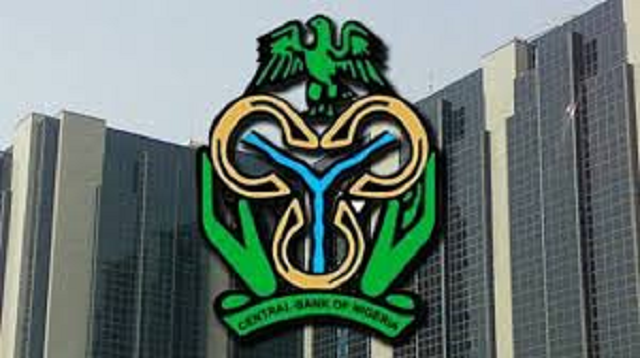Members of Organised Private Sector (OPS) have described Tuesday’s reduction of the Monetary Policy Rate (MPR) from 12.5 percent to 11.5 percent by the Monetary Policy Committee (MPC) of the Central Bank of Nigeria (CBN) as a welcome development that is expected to boost lending to the real sector.
Director-General of the Nigeria Employers’ Consultative Association (NECA), Mr. Timothy Olawale, in a statement yesterday, described the 100 basis points slash in interest rate as a “commendable move in the right direction and an indication of the willingness and determination of CBN to keep the interest rate low in order to boost lending to the real sector.”
Olawale added: “We believe that this deliberate action by CBN, which is aimed at increasing the money supply should have a positive effect on the rate of existing loans, thereby reducing the cost of borrowing, which should translate to cheaper access to funds for production and service sectors’ utilisation, which should help in stimulating economic growth.”
He, however, noted that businesses in the country were also more disturbed due to the rising inflation (food inflation) and the growing concern in sourcing foreign exchange for critical raw materials for production activities.
“We solicit for additional injections in the agricultural intervention schemes to stimulate farmers in boosting food production.
Likewise, issues surrounding the suspension of the sourcing of foreign exchange through third parties should be critically re-examined to nip in the bud a near collapse of businesses,” he said.
Speaking in the same vein, Director-General of Nigerian Association of Chamber of Commerce, Industry, Mines and Agriculture (NACCIMA), Mr. Ayo Olukanni, said the decision to reduce the policy rates is projected to have an impact on the lending rate and encourage businesses to borrow from the banks.
Olukanni said: “It is worthy of note that this reduction is coming against the backdrop of a tight monetary policy stance that CBN had maintained for most of this year, which tended to crowd out most businesses especially the micro, small and medium-sized enterprises (MSMEs). Our hope is that this reduction in MPR will potentially make it easier for MSMEs to obtain much-needed funds for growth and development.”
Also, in his comment, Director-General of Lagos Chamber of Commerce and Industry (LCCI), Dr. Muda Yusuf, told THISDAY that the reduction in MPR has signaling effect on CBN’s disposition to pursue an expansionary policy stance to address the looming recession.
Yusuf explained: “We share the perspective of CBN that current inflationary challenges are not driven by monetary factors but were outcomes of supply-side challenges in the economy. This calls for a resetting of priorities, moving away from the current disproportionate emphasis on demand management approach to strategies that would strengthen the supply side of economy.
“It is imperative as well to review the current foreign exchange management strategies to reduce current uncertainties and boost investors’ confidence.”
He noted that the lowering of MPR by 100 basis points from 12.5 per cent to 11.5 per cent was a surprise, saying: “My expectation was that the status quo would be maintained. Rates were already generally low in the money market. In fact, concerns were being expressed about the fact that the real savings and deposits rate were negative. But, I do not believe it would have any material impact on lending rates.”
In his contribution, Professor of Economics at Akwa Ibom State University, Prof. Akpan Ekpo, told THISDAY that CBN opted to reduce the rate in order to enhance the real sector’s access to credit and stimulate growth.
Ekpo, however, noted that the reduction from 12.5 per cent to 11.5 per cent was too small to have any beneficial significant impact on the economy.
“It should have been reduced to 9.5 per cent to see what will happen. My worry is that in theory MPR is supposed to have an impact on the lending rate but in practice, it does not in Nigeria. It only has an impact on the interbank rate. The lending rate in Nigeria today is 25 per cent and will not come down to 15 per cent.
“CBN is doing its best but the problem with the economy is structural. Nigerian inflation is not only a monetary phenomenon. It has its fiscal side because the way the government spends affects prices. There is also what I call structural inflation because when you remove oil subsidy all the prices will go up, which affects more of the production side of the economy. So, we need fiscal and structural policies to fight the recession that is coming.
“CBN is only trying to reduce the damage because we will definitely be in a recession when the third-quarter report of the GDP comes out.”
Ekpo, who was the former Director-General of West African Institute for Financial and Economic Management, also noted that the real interest rates in the economy would be negative because MPR’s expected inflation rate would be lower than the current inflation rate of 13.22 per cent.
This, according to him, meant that “there is some inconsistency between saving and investment, which implied that there is a lot of liquidity in the system but we do not know who is getting it,” adding that the new rate would not encourage savings which no longer makes sense.
According to Professor of Finance, University of Lagos, Prof. Wilfred Iyiegbuniwe, the reduction of MPR would influence all financial market’s rates at a time the economy is witnessing low-interest rates, particularly on savings.
“The low-interest rate is already discouraging saving because its rate has been too low for a very long time that it looks like the poor is financing the rich,” Iyiegbuniwe said.
He advised that the fiscal and monetary policies need to be consistent and argued that “CBN must have a way of advising the government appropriately on fiscal policies as the financial adviser to the government.”
Source: THISDAY












